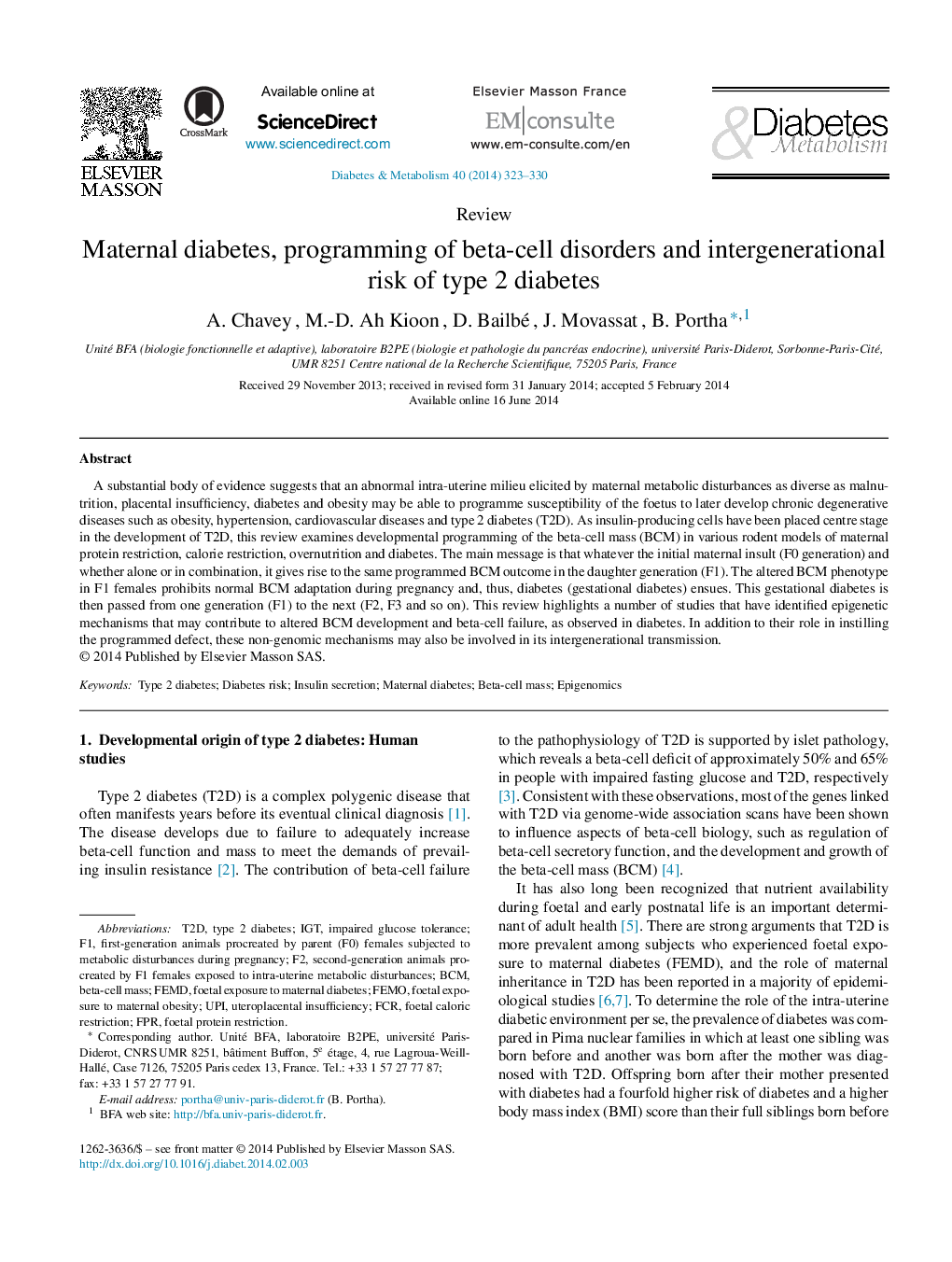| کد مقاله | کد نشریه | سال انتشار | مقاله انگلیسی | نسخه تمام متن |
|---|---|---|---|---|
| 3259347 | 1207574 | 2014 | 8 صفحه PDF | دانلود رایگان |
A substantial body of evidence suggests that an abnormal intra-uterine milieu elicited by maternal metabolic disturbances as diverse as malnutrition, placental insufficiency, diabetes and obesity may be able to programme susceptibility of the foetus to later develop chronic degenerative diseases such as obesity, hypertension, cardiovascular diseases and type 2 diabetes (T2D). As insulin-producing cells have been placed centre stage in the development of T2D, this review examines developmental programming of the beta-cell mass (BCM) in various rodent models of maternal protein restriction, calorie restriction, overnutrition and diabetes. The main message is that whatever the initial maternal insult (F0 generation) and whether alone or in combination, it gives rise to the same programmed BCM outcome in the daughter generation (F1). The altered BCM phenotype in F1 females prohibits normal BCM adaptation during pregnancy and, thus, diabetes (gestational diabetes) ensues. This gestational diabetes is then passed from one generation (F1) to the next (F2, F3 and so on). This review highlights a number of studies that have identified epigenetic mechanisms that may contribute to altered BCM development and beta-cell failure, as observed in diabetes. In addition to their role in instilling the programmed defect, these non-genomic mechanisms may also be involved in its intergenerational transmission.
Journal: Diabetes & Metabolism - Volume 40, Issue 5, November 2014, Pages 323–330
